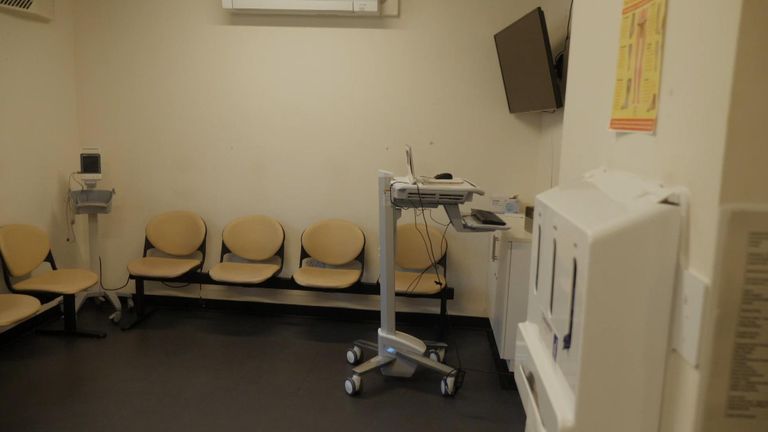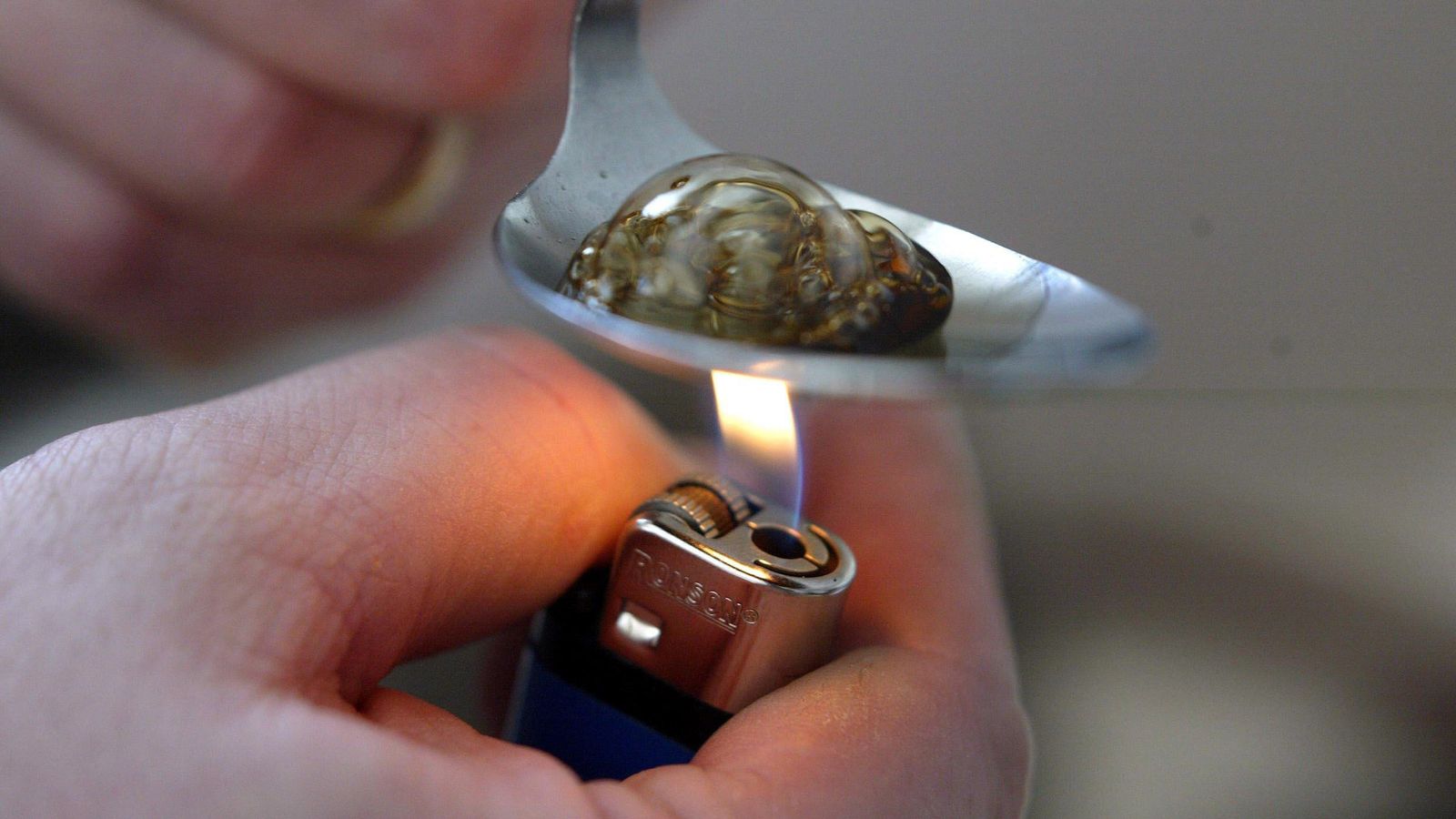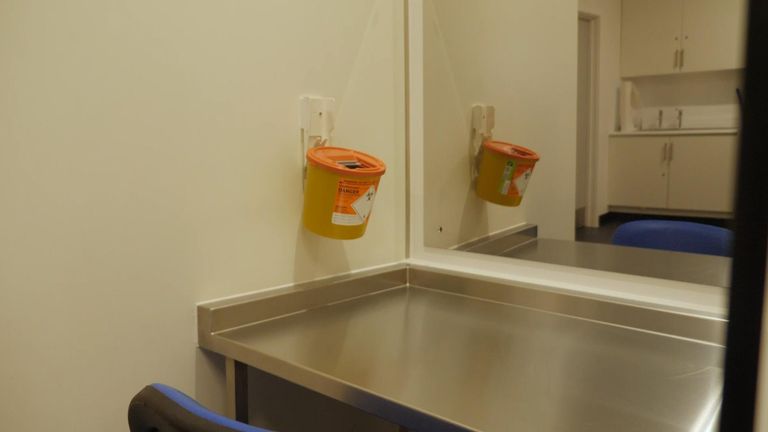
Plans for the UK’s first facility for the safer consumption of illegal drugs have been approved – despite the opposition of the government in Westminster.
The proposed pilot facility will be based at Hunter Street Health Centre in Glasgow.
The plans were rubber-stamped by the city’s integrated joint board of council and health officials on Wednesday, subject to the receipt of Scottish government funding.
Holyrood has agreed to make up to £2.3m a year available for the pilot, with staff expected to be hired from next year.
Dr Saket Priyadarshi, associate medical director of Glasgow’s alcohol and drug recovery services, told Sky News the centre will allow people to use drugs in “clean, hygienic environments where they’re supported by trained professional staff who can respond to any problems that arise”.
It comes after Scotland’s top law officer said it “would not be in the public interest” to prosecute users of such facilities for simple possession offences.
Drug laws are reserved for the UK government, but Scotland’s Lord Advocate Dorothy Bain KC sets out the rules on whether prosecutions should take place.
Westminster has consistently rejected pleas for such a facility, but the Home Office has since said it will not intervene in the Scottish scheme.
Safer drug consumption facilities (SDCFs) are backed by the Scottish government as a way to tackle the country’s drug-related deaths crisis.
A total of 1,051 people died in Scotland due to drug misuse in 2022, according to the National Records of Scotland (NRS).
Although this is a decrease of 279 deaths from 2021 and the lowest level for five years, Scotland still has the worst drug death rate in the UK and the rest of Europe.
First proposed in 2016, the SDCF will allow people to inject drugs under supervision and aims to reduce the harms associated with drug use in public areas.
A report to the board said: “SDCFs have been shown to reduce public injecting and discarded needles, and remove barriers to, and improve the uptake into, treatment and care.”
The report added that the facility is “likely to polarise opinion”.
Opposing campaigners believe SDCFs could minimise the dangers of drugs and divert vital resources away from treatment-based approaches.
The Home Office has also repeatedly said “there is no safe way to take illegal drugs, which devastate lives, ruin families and damage communities”.
But in response to concerns that the centre could become a “magnet for crime” and drug dealers looking to take advantage of vulnerable people, Dr Priyadarshi said: “The international evidence would suggest that’s unlikely to happen if the service is well managed.”
Read more:
Scotland drug deaths down but rate higher than rest of Europe
‘I lost my leg to £15 heroin hit’ – on the frontline of drug epidemic
Documents presented to the Glasgow City Integration Joint Board said the facility will be open between 9am and 9pm, 365 days a year.
Hunter Street Health Centre currently provides a heroin-assisted treatment service.
The report said the site “offers a discrete base, closely located to the city centre, and implementation of the enhanced drug treatment service within the centre has not caused significant challenges for the community”.
The integration joint board will cover the cost of redesigning the building, creating a reception and injecting section with booths, as well as treatment rooms and a recovery area.
The report said: “The SDCF will be subject to a robust independent evaluation studying the impact on service users, staff, local communities and businesses, and whether anticipated wider societal benefits such as cost reductions in other services are realised.”















